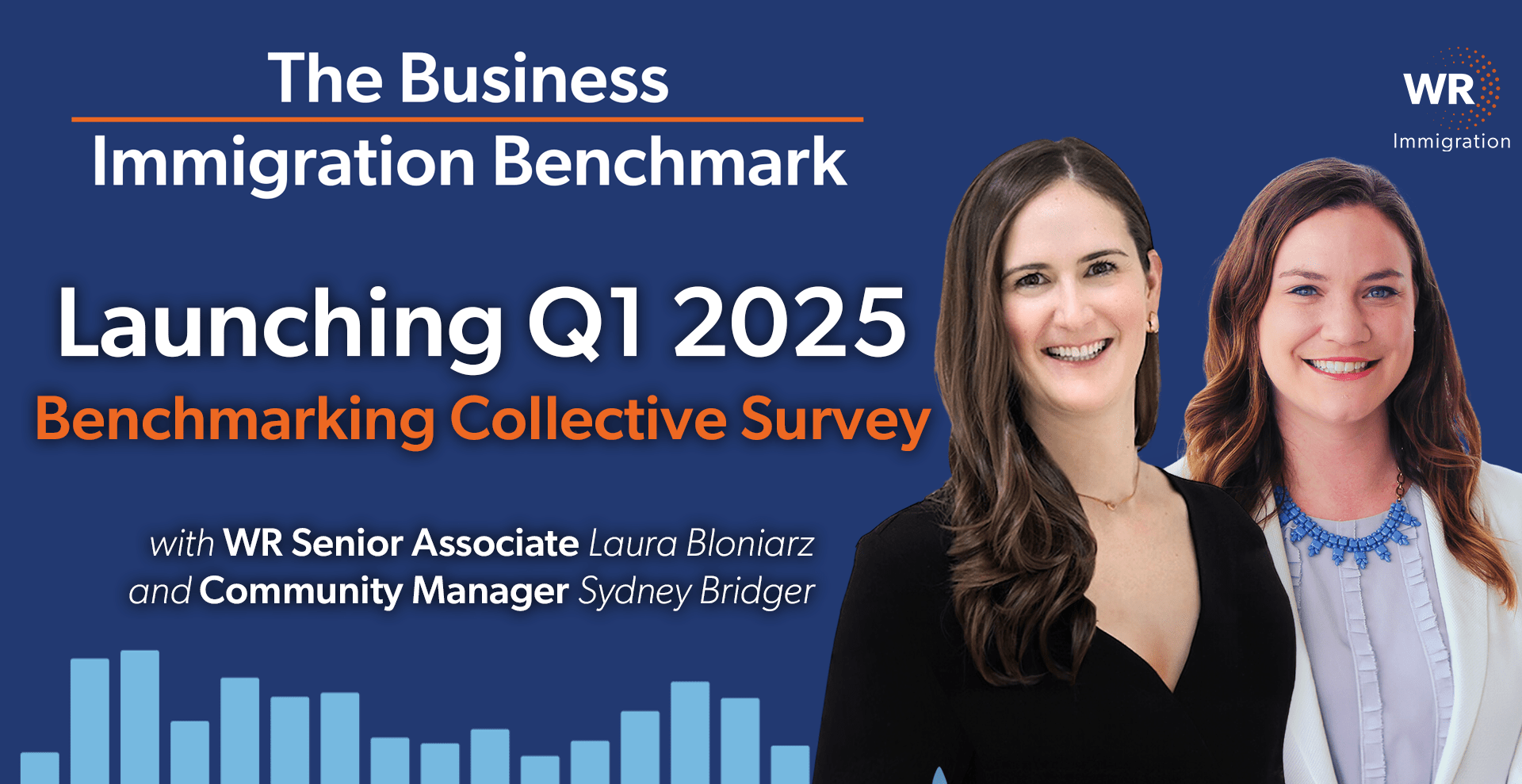Want to stay in the loop? Subscribe here to get the latest updates on the Business Immigration Benchmark podcast and more!
In this week’s episode of The Business Immigration Benchmark, I sat down with WR’s Community Manager, Sydney Bridger, SHRM-SCP, to explore the latest trends in global mobility and how teams are adapting to the new administration. We discussed the early themes emerging from our 2025 Q1 Benchmarking Survey (still fielding responses, so reach out if you’d like to participate), including communication strategies, managing foreign national anxiety, and updating policies to stay compliant in a rapidly changing environment.
For global mobility professionals navigating uncertainty, this episode provides actionable insights into how technology, compliance, and change management are shaping industry priorities.
Key Takeaways:
1. Adapting to the New Administration:
With the Trump administration’s return, global mobility teams are facing renewed compliance challenges. The survey reveals that many organizations are already making process updates, anticipating policy shifts, and refining their communication strategies to keep employees informed.
2. Leveraging Technology & Compliance Strategies:
Companies are increasingly relying on technology to streamline immigration processes, audit compliance, and improve data management. Ensuring accurate reporting systems and proactively updating records will be critical in 2025.
3. Managing Foreign National Anxiety:
Uncertainty has led to heightened anxiety among foreign nationals. Employers are addressing this through clear communication channels—whether via town halls, newsletters, or intranet updates—to provide timely, accurate information on policy changes and travel restrictions.
4. Updating Global Mobility Policies:
Teams are revisiting their policies on international business travel, remote work permissions, and green card sponsorship timelines to ensure they align with evolving regulations. The benchmarking survey highlights a growing focus on early green card initiation and risk mitigation strategies.
My Parting Thoughts
As we step into 2025, staying proactive in compliance, leveraging technology, and maintaining clear communication will be key to managing global mobility programs effectively. If you haven’t already, consider joining our Immigration Benchmarking Collective on LinkedIn for access to industry insights and best practices.
If you have insights or strategies you’d like to share, feel free to DM me on LinkedIn or submit a question here!


